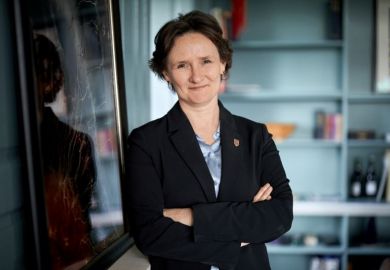The Westminster government has published the most detailed draft so far of its “bold, ambitious alternative” to full participation in Horizon Europe, hoping for feedback as it gears up for European Union talks.
The 50-page prospectus sketches out the structure of the Pioneer programme, which would run until 2028 and get £14.6 billion in funding currently earmarked for Horizon, split between four “pillars” aimed at individual researchers, innovation, international collaboration and infrastructure.
The first, dubbed Pioneer Talent, would get £2 billion to spend on up to 800 studentships, up to 370 international fellowships and up to 260 fellowships, plus an unspecified number of professorships.
The plan allocates £3.5 billion to the innovation pillar, £3.8 billion for the international one and £1.7 billion for infrastructure – “subject to future spending reviews”.
In her foreword, secretary of state for science Michelle Donelan, who met with European commissioner Mariya Gabriel in Brussels to discuss Horizon association on 4 April, said the draft was being published for feedback.
“Given the need for certainty for the sector we believe it is important to circulate our alternative plan so that researchers, innovators and businesses can feed into it and help shape it,” she said.
While she acknowledged the sector’s preference to join Horizon, she also sought to present a domestic alternative as more certain than continent-wide competition. “Our receipts from Horizon would be uncertain as they depend on the performance of UK participants in competitive processes," Ms Donelan said.
She claimed UK scientists would receive £3 billion more from the Pioneer programme based on their average success rate in the EU predecessor programme, Horizon 2020.
While Ms Donelan emphasised the differences in design between Pioneer and Horizon, she also said that uncapped participation in the collaborative parts of the EU programme until 31 March 2025 would be a “key part” of UK plans, with £1.3 billion set aside for those working through Horizon.
Announcing the draft, the government said the programme would be set up “as quickly as possible if needed” based on “intensive engagement” with companies and researchers.
Tim Bradshaw, chief executive of the Russell Group, said it would “scrutinise the proposals carefully” but that it was right the UK was seeking “fair and appropriate terms” for Horizon participation. “We have always been clear that it will be a challenge to replicate the full benefits of the world’s largest collaborative research programme,” he added.
Diana Beech, chief executive of London Higher, said the draft “could propel the UK’s science and technology superpower ambitions forward irrespective of the outcome of negotiations”.
A thawing of tensions after an agreement on Northern Irish trade rules was finalised has removed the main barrier to the UK joining Horizon, but observers have warned that a push to skip less lucrative parts of the programme could hold up final sign-off.
Minister of state George Freeman, who said applying to Pioneer would be “substantially less bureaucratic” than Horizon, has warned that talks to join the latter could take up to a year. In its Pioneer draft the government said it would “work with the community to identify good practice and avoid pitfalls of EU funding”.
Register to continue
Why register?
- Registration is free and only takes a moment
- Once registered, you can read 3 articles a month
- Sign up for our newsletter
Subscribe
Or subscribe for unlimited access to:
- Unlimited access to news, views, insights & reviews
- Digital editions
- Digital access to THE’s university and college rankings analysis
Already registered or a current subscriber?








